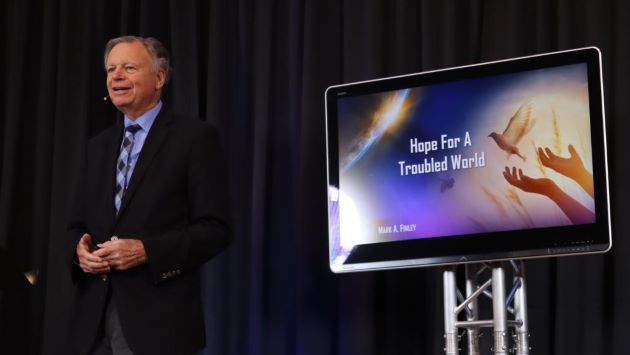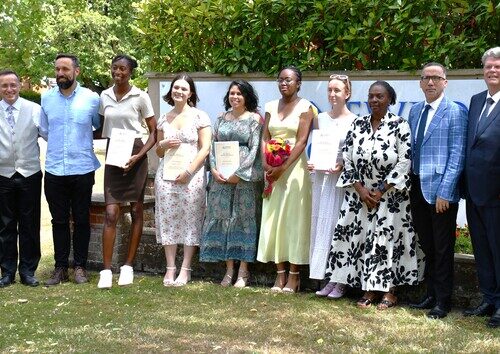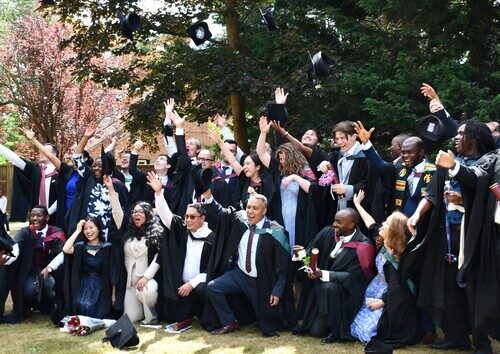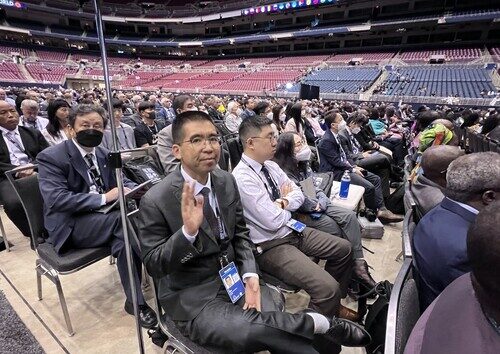29 April 2022 | Warsaw, Poland [David Neal]
During the second half of April, Mark and Teenie Finley returned to Europe to give particular help and support to the work of the church in Poland and Hungary, providing spiritual comfort to both local members and displaced people. While in Warsaw, Pastor Finley took a few moments from the busy schedule to reflect on these testing times.
During the 1980’s you served the Trans-European Division as Ministerial Secretary and led evangelistic campaigns division-wide, among them in the Polish cities of Gdansk and Katowice. Close to four decades later, you are back in Poland. What are your reflections and impressions?
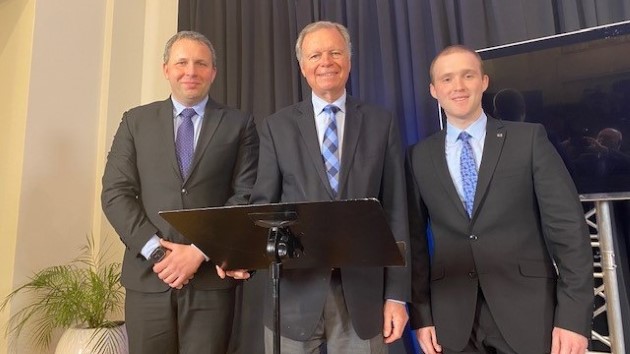
When I think about 35 years ago, it was a time of great openness and spiritual receptivity. I remember one man who wanted to come to our meetings held at a theatre. He was holding up his Polish złotys and saying, “I’ve been denied this for 40 years, please don’t deny me anymore! Let me come into the meeting!” There were so many people in the meetings that we held a second session; it reflected the desire in the hearts of people to hear the Gospel and hear the Word of God after 35 years of secularism which has really gripped the nation.
Here in Warsaw today, as I look at the buildings built during the last 35 years – huge glass high-rise towers, and as I walk to and from my hotel to the church each evening, I see youth living like any other in western society. This poses a real challenge for the church, but yet, I see God working in the hearts and minds of young people and adults here, with the Spirit of God working in very special ways.
Do you have a concern that the door of opportunity to preach the Gospel may be limited or constrained due to the events that are currently taking place in Europe?
We never know what tomorrow will bring, so the opportunities that the church has today may appear to be limited from a human perspective. But tomorrow, if a natural disaster or an economic crisis hit, or if civil conflict takes place, people can turn to God very quickly. So, my viewpoint is this: God has not called us to success; He’s called us to faithfulness. And if we are faithful to the mission that God has given us, God will determine what success is.
I think it is fair to say that for the Polish church currently it is anything but business as usual. What do you see of how they are responding to crisis?
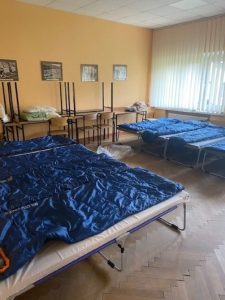
The Polish nation in general, and Polish Adventists specifically, have opened their hearts and minds to guests from Ukraine. It is remarkable to see the commitment and sacrifice Polish Adventists are making, opening their homes, opening their churches along with our college at Podkowa Leśna to welcome people they’ve never met before. Here at the Central Warsaw Church, I’m told that we’ve had 400 guests come through at this point, and at the college they are taking 20 to 40 refugees every single day, providing both shelter and food. Many are providing from their own finances, and I recognise the huge expenses incurred. Of the 40 Polish Union pastors I met with over zoom, 95% of them have been housing guests in their church buildings. So, when I see what is happening, God is giving the Polish church a great opportunity to share his love and gracious compassion with others. How the Polish Union members have responded is both remarkable and beautiful.
When we see distressing images on our television screens of mass destruction to life and property, it is not difficult for both secular people – and people of faith to wonder where God is in all this. What can we say or do to comfort and reassure about who God is?
Your question reminds me of an experience I had a number of years ago visiting Auschwitz. I was walking through the former concentration camp street; my heart was heavy. In one building I saw the collection of shoes of people who were gassed. On the walls were pictures of gaunt human beings.
As I came to one cell, I noticed that one prisoner had etched in the wall some words, which my guide translated – “God is here”. I thought to myself, if God can visit here, he can visit anywhere… There are times that we don’t see God’s presence. When Jesus hung on the cross, he did not see God’s presence at all though the darkness surrounding the cross. I think the model of Christ is a good one for us to understand, because although Jesus didn’t see the presence of the Father, He was there, so the question of a loving God allowing suffering, in allowing heartache and sorrow, is all part of this great controversy between good and evil.
In a lot of ways, there is no adequate explanation for it. You can reason from the standpoint of free will. You also can reason from the standpoint that suffering creates compassion, because even in Mariupol, when somebody says, ‘God has left’, there’s a mother who shares her bread with her child and she goes hungry.
God is there when there’s the neighbour who risks his life with bombs exploding around him to ensure that an infirm elderly woman gets her supply of fresh water. God is there when that single parent goes out into the street, risking her life to rescue and tend to an injured child. God is working through a smile, in the kindness of giving of a loaf of bread, and in the bandaging of a wound.
God is there – so I see it this in two ways. First, God is working in ways that surprise us, and secondly, we see God in other people, through the actions of love and kindness.
Moving on to wider matters of faith and mission in Europe, I sometimes meet faithful members who believe that personal witness in these times is essentially showing Jesus through acts of kindness, love and care, accompanied with an aversion to sharing Jesus through the spoken word.
I think it is a false dichotomy because of the way Christ wholeheartedly ministered. As I understand Christ’s ministry, it was holistic, providing healing for the physical, emotional, and spiritual needs of the individual. His loving purpose was to help them for eternity. If our interest is in helping friends and neighbours to have healthy bodies simply to live longer, and not share the good news that the abundant life Christ offers is available for eternity – isn’t that short-sighted? I believe that it is through God’s love and grace we ourselves have experienced, that prompts us to share in both word and deed – opportunities He provides.
We also live in a time when the confidence in the authority of Scripture is in decline. How would you respond to that?
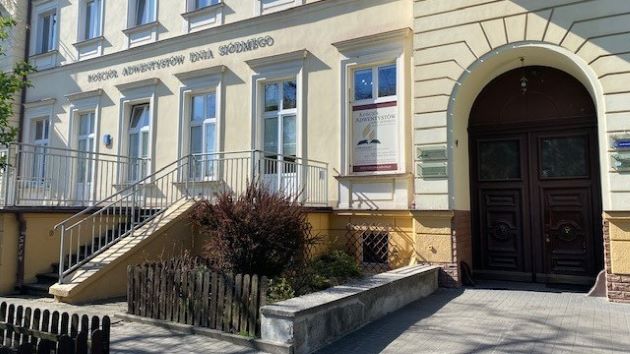
My confidence in the word of God continues to grow. Returning here to Warsaw is thrilling in some ways because I meet members who were baptised during the evangelistic meetings we held in Gdansk many years ago. Today some are now serving physicians, providing a healing ministry, growing disciples, and touching the lives of people for the better every day. That is evidence for me that the Bible still has the power to change lives for the better. What I can also say about my confidence in the Word of God, is that it has helped my preaching and teaching to become more Christ-centred.
The growth of the church in Europe seems at times slow when compared to rapid growth of membership in other parts of the world.
John Wesley believed in what he calls ‘Prevenient grace’ which means that the grace of God is constantly at work in every heart, whether recognised by the individual or not. Because of Christ’s divine love for souls, His Spirit has already gone ahead of us. Mission is God’s work – not our work, but a joyful work we are invited to partner and participate in. This means that we are not alone in this work because all heaven is interested in this work. As our eyes are open to the leading and promptings of the Holy Spirit, His love for souls becomes our love for souls. I understand and recognise the picture you describe of the work in Europe, but my response is this – God has not called us to success – He’s called us to faithfulness.
Thank you, Pastor Finley for sharing these insights, and wish you the Lord’s blessing as you and Teenie now move on to Hungary for similar meetings and further opportunities to minster.

